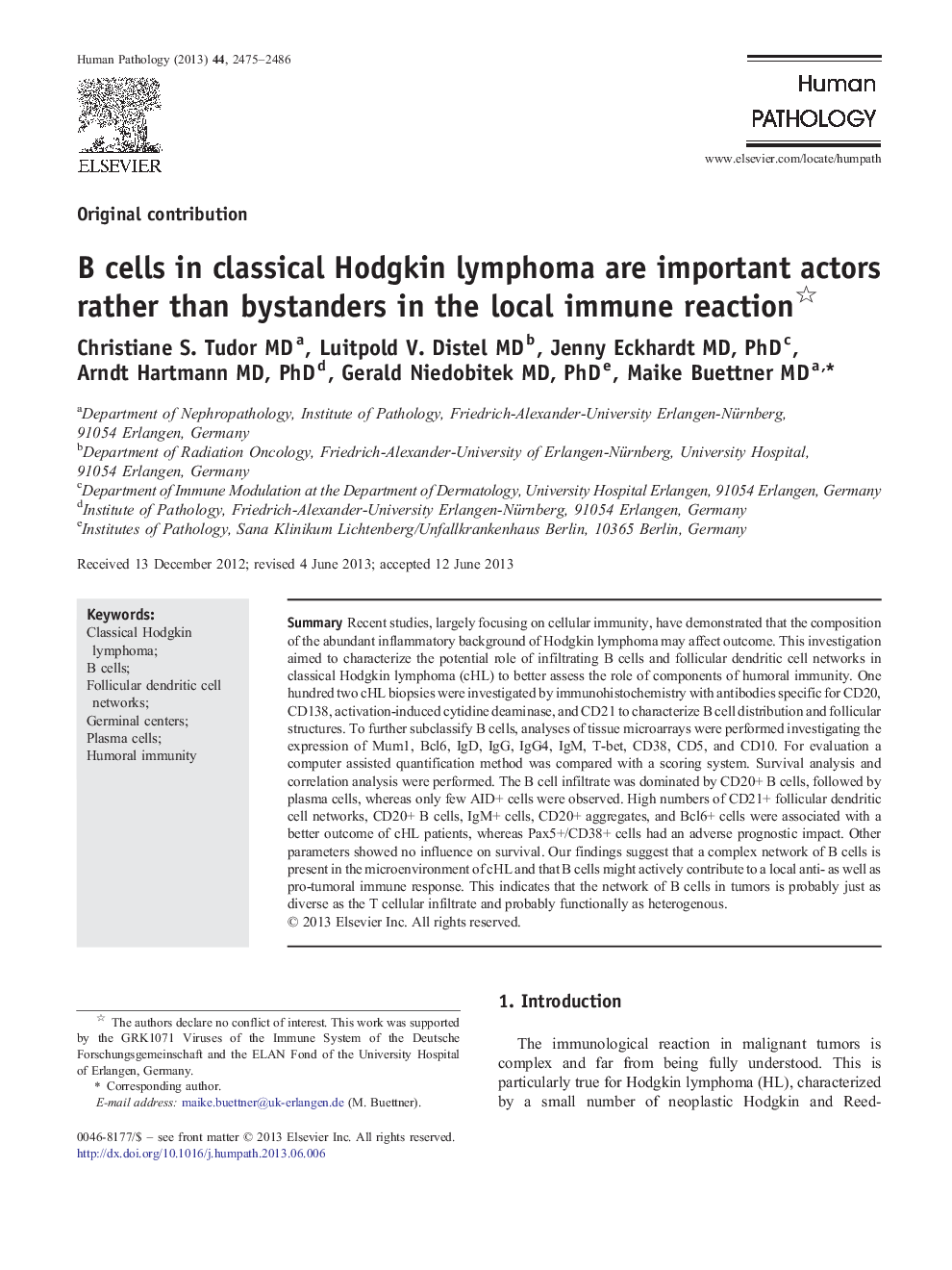| Article ID | Journal | Published Year | Pages | File Type |
|---|---|---|---|---|
| 6215645 | Human Pathology | 2013 | 12 Pages |
SummaryRecent studies, largely focusing on cellular immunity, have demonstrated that the composition of the abundant inflammatory background of Hodgkin lymphoma may affect outcome. This investigation aimed to characterize the potential role of infiltrating B cells and follicular dendritic cell networks in classical Hodgkin lymphoma (cHL) to better assess the role of components of humoral immunity. One hundred two cHL biopsies were investigated by immunohistochemistry with antibodies specific for CD20, CD138, activation-induced cytidine deaminase, and CD21 to characterize B cell distribution and follicular structures. To further subclassify B cells, analyses of tissue microarrays were performed investigating the expression of Mum1, Bcl6, IgD, IgG, IgG4, IgM, T-bet, CD38, CD5, and CD10. For evaluation a computer assisted quantification method was compared with a scoring system. Survival analysis and correlation analysis were performed. The B cell infiltrate was dominated by CD20+ B cells, followed by plasma cells, whereas only few AID+ cells were observed. High numbers of CD21+ follicular dendritic cell networks, CD20+ B cells, IgM+ cells, CD20+ aggregates, and Bcl6+ cells were associated with a better outcome of cHL patients, whereas Pax5+/CD38+ cells had an adverse prognostic impact. Other parameters showed no influence on survival. Our findings suggest that a complex network of B cells is present in the microenvironment of cHL and that B cells might actively contribute to a local anti- as well as pro-tumoral immune response. This indicates that the network of B cells in tumors is probably just as diverse as the T cellular infiltrate and probably functionally as heterogenous.
